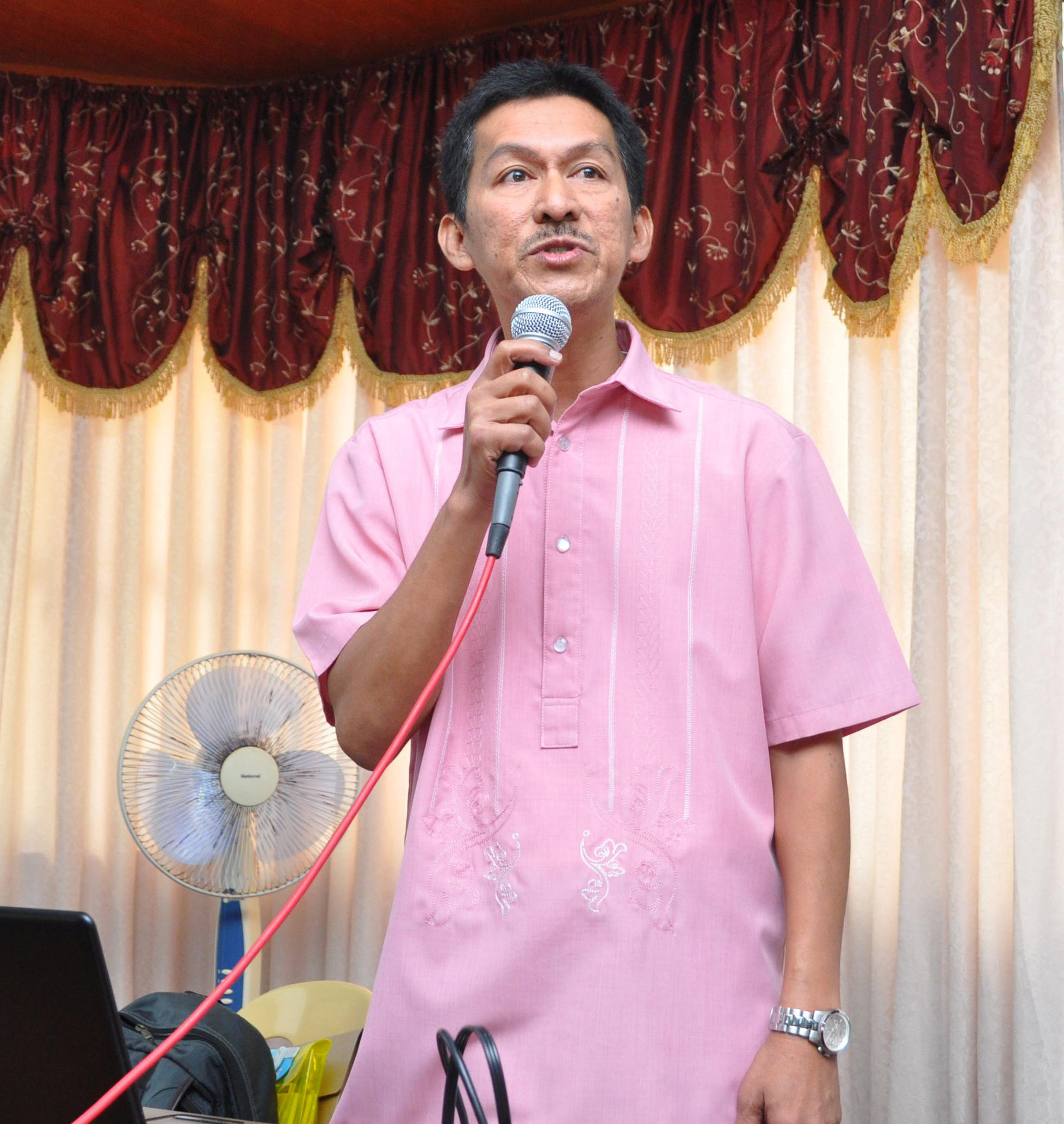VSU embraces EO No. 80 re adoption of performance-based incentive system
- Details
-
Published: 30 August 2013

The Visayas State University conducted two seminar-workshops in response to the President of the Philippines', Benigno Simeon C. Aquino III, Executive Order No. 80 series of 2012 directing all government employees to adopt the Performance-Based Incentive System.
The first seminar-workshop was on Cascading of Agency Performance Targets held on August 13-14, 2012 and was participated in by the key officials of the University to satisfy the CHED and DBM requirements for classification of the institution whether as "Best", "Better", or "Good" bureau.
The other workshop was on the Crafting of Table of Major Final Outputs and Success Indicators as one of the basic attachments for the approval of the Strategic Performance Management System. This was held on September 4-6, 2012 at the VSU's Center for Continuing Education and was attended by the key officials, heads, and the clerks.
During the first workshop, Dr. Edgardo E. Tulin, VP for Planning and Resource Generation, with the assistance of Dr. Lourdes B. Cano, Director for Administration and Human Resource Development, and Mrs. Roberta C. Lemos, Director for Finance, presented Administrative Order No. 25 which mandates for the creation of an Inter-Agency Task Force on the Harmonization of National Government Performance Monitoring, Information and Reporting Systems.
AO No. 25 aims to rationalize, harmonize, streamline, simplify, integrate and unify the efforts of government agencies relative to the National Leadership's Agenda; establish a unified and integrated Results-Based Performance Monitoring System (RBPMS); and use RBPMS as basis for determining entitlement to performance-based allowances, incentives, or compensation of personnel.
Dr. Tulin also discussed the RBPMS supplemented with a workshop in which the participants were grouped into five, namely: instruction, research, extension, support to operations, and general administrative and support services.
As a result of the workshop, each group came up with Major Final Outputs which were then consolidated to have a harmonized RBPMS using the five key result areas as laid down in EO No. 43 such as: 1) transparent, accountable, and participatory governance; 2) poverty reduction and empowerment of the poor and vulnerable; 3) rapid, inclusive and sustained economic growth; 4) just and lasting peace and the rule of law; and 5) integrity of the environment and climate change adaptation and mitigation.
Dr. Tulin also presented the Performance-Based Incentive (PBI) System consisting of the Productivity Enhancement Incentive (PEI) in which every government employee continually receives P5,000 across-the-board annually, and the Performance-Based Bonus (PBB), which is a top-up bonus, to be given to personnel of bureaus or delivery units in accordance with their contribution to the accomplishment of their department's overall targets and commitments beginning FY 2012.
It was also clearly explained that the different bureaus or delivery services in the country shall be ranked according to their performance following a normal distribution. Only top 10% in the entire Philippine bureaucracy will get a "Best" rating in which they are entitled to receive a maximum of P35,000 PBB; 25% with "Better" which will allow them to receive a maximum of P25,000 PBB; 50% with "Good" which would warrant them a maximum of P15,000 PBB. The remaining 15% of ranked bureaus with "Poor" ratings whose accomplishments is less than 90% of targets will not receive PBB.
However, not all employees will automatically receive the maximum PBB based on the ranking of their bureau. The heads of the agencies shall rate the employees using a CSC approved Performance Management System per Civil Service Memorandum Circular No. 6, s. 2012. Only 10% of the total number of employees with a "Best" rating can receive the maximum PBB, 25% with a "Better" rating are entitled for a PBB, and 65% with "Good" rating will also receive a PBB. Those with "Below Satisfactory" rating will not receive the PBB.
The table below shows the PBB rates of incentives an employee can receive based on the bureau's category and the individual's category.
Bureau Category Best Performer (10%) Better Performer (25%) Good Performer (65%)
Best Bureau (10%) P35,000 P20,000 P10,000
Better Bureau (25% P25,000 P13,500 P7,000
Good Bureau (50%) P15,000 P10,000 P5,000
During the workshop, the participants were able to address concerns related to the guidelines set in cascading department targets.
To reinforce what have been accomplished during the first workshop, a follow through workshop (done within three days) was also conducted in which the participants were divided into instruction, research and extension, and administration, respectively.
Dr. E. E. Tulin discussed Executive Order No. 80, s. 2012 and the Status of the Cascading of Department Targets as required by the Commission on Higher Education (CHED) and the Department of Budget and Management (DBM).
Dr. L. B. Cano, on the other hand, presented the Strategic Performance Management System (SPMS) and the Status of SPMS Preparation.
After the discussion, it was followed by a workshop on Preparation of Major Final Outputs and Success Indicators.
As a result of the two workshops, VSU was able to comply with the remaining requirements (Table of Major Final Outputs and Success Indicators) to facilitate endorsement/recommending approval of the VSU SPMS by the CSC Central Office through the CSC Regional Office.
Since the VSU SPMS is already good as approved for 2012 implementation, VSU employees have a good chance to receive the PBB subject to qualification as per bureau category.
The VSU SPMS will provide a scientific and verifiable basis in assessing both the organizational performance and that of the collective performance of the employees in various units within the University. It also ensures a performance-based incentive scheme, the amount of which is based on the performance of employees.

